| Moondram Pirai | |
|---|---|
 Theatrical release poster | |
| Directed by | Balu Mahendra |
| Produced by |
G. Thyagarajan G. Saravanan |
| Written by | Balu Mahendra |
| Starring |
Kamal Haasan Sridevi |
| Music by | Ilaiyaraaja |
| Cinematography | Balu Mahendra |
| Edited by | D. Vasu |
Production company |
Sathya Jyothi Films |
| Distributed by | Sathya Jyothi Films |
Release date |
|
Running time | 143 minutes |
| Country | India |
| Language | Tamil |
Moondram Pirai (lit.?The crescent seen on the third day following new moon day) is a 1982 Indian Tamil-language romantic drama film written, directed and filmed by Balu Mahendra. The film features Kamal Haasan and Sridevi in the lead roles, while Silk Smitha, Poornam Vishwanathan and Y. G. Mahendra play supporting roles. The music for the film was composed by Ilaiyaraaja, with lyrics written by Kannadasan, Vairamuthu and Gangai Amaran. It also featured the last song written by Kannadasan to be recorded before his death in 1981.
Moondram Pirai is about a school teacher, R. Srinivas, who rescues a woman, Bhagyalakshmi, who is suffering from retrograde amnesia, from a brothel, and protects her in his house located in Ketti. The rest of the film shows how Bhagyalakshmi recovers her memory with Srinivas' help. Moondram Pirai is based on Balu Mahendra's brief relationship with actress Shoba, who died in 1980, shortly after their marriage. It was predominantly shot in Ooty and Ketti, with further shooting also taking place in Bangalore.
Moondram Pirai was released on 19 February 1982 to positive critical reception. It was a box office success and had a theatrical run of 329 days. The film won two National Film Awards: Best Actor for Haasan, and Best Cinematography for Mahendra. It also won the Best Director Award for Mahendra at the Filmfare Awards, and five Tamil Nadu State Film Awards, including Best Film (third prize), Best Actor (Haasan) and Best Actress (Sridevi). The film was dubbed in Telugu under the title Vasantha Kokila. Mahendra remade the film in Hindi as Sadma, with Haasan, Sridevi and Smita reprising their roles from the original version.
Contents
Plot
Bhagyalakshmi, a young woman, has a car accident while returning from a party and is hospitalised with severe head injuries. When she recovers, she is diagnosed with retrograde amnesia and she fails to recognise her own parents. She mentally regresses to the state of a child. While she is undergoing treatment, she is kidnapped and sold to the madam of a brothel. R. Srinivas, also known as Cheenu, comes to Chennai to meet his old friend. Together, they visit the brothel to relax. The madam sends Bhagyalakshmi, renamed Vijaya, to his room. Cheenu realises that she is mentally still a child and pities her. He learns that she is from a cultured family, and that she was kidnapped and forced into prostitution.
Cheenu returns the next day and, after paying a huge sum to the madam, takes Vijaya out, supposedly on a pleasure trip. He takes her away to Ketti, where he is working as a school teacher. He takes her to his residence, where he protects her and also pampers her like a child. Viji, as she is called by Cheenu, has completely forgotten her past and becomes very close to him. When Viji accidentally spills ink over Cheenu's documents, angering him, their relationship is threatened, but they reconcile. Later, a local woodcutter named Nataraj lusts for Viji and nearly assaults her, but she manages to save herself. When she tells Cheenu about it, he becomes livid with rage and almost kills Nataraj, but is stopped by his neighbours who were informed of the incident by Viji. Meanwhile, the wife of Cheenu's headmaster is attracted to Cheenu, though he does not reciprocate her feelings.
Viji's father Vedachalam, who was searching her through the police, releases a newspaper advertisement about his lost daughter. A co-passenger who had travelled with Cheenu and Viji from Chennai to Ooty by train gives them a lead. Cheenu takes Viji to an Ayurvedic medical practitioner and leaves her there for a day's treatment. In his absence, the police come to his house searching for Viji. Finally, the police learn that Viji is getting treated at the doctor's place and reach there. Cheenu is unable to come as he is afraid of police action. The treatment goes through successfully. Viji regains her memory and completely forgets about the period between her accident and recovery. Vedachalam and his wife are happy and decide to leave. From the doctor, Vedachalam learns that the person who had brought her there had been taking good care of their daughter; he withdraws his police complaint and they begin their journey to Chennai with Viji.
After the police leave, Cheenu comes running after the car in which Viji is travelling. He follows them to the railway station and tries to gain Viji's attention, but she is unable to recognise him. Cheenu acts like a dancing monkey that Viji developed a liking for, but Viji, unable to comprehend, thinks he is insane and begging for food. Cheenu continues his futile attempts to gain her attention, and the train eventually leaves with Viji not recognising him. Cheenu, who was injured while chasing her car and trying to get her attention, is left alone, heartbroken.
Cast
- Kamal Haasan as R. Srinivas "Cheenu"
- Sridevi as Bhagyalaksmi / Vijaya "Viji"
- Y. G. Mahendra as Srinivas's friend
- Silk Smitha as Mrs. Viswanathan, the school headmaster's wife
- Ganthimathi as the brothel owner
- Poornam Vishwanathan as Mr. Viswanathan, the school headmaster
- S. R. Veeraraghavan as Vedachalam
- J. V. Ramana Murthi as the Ayurveda practitioner
- K. Natraj as Natarajan, the woodcutter
Production
Development
Moondram Pirai was produced by G. Thyagarajan and G. Saravanan under their production banner, Sathya Jyothi Films. A. Ramaswamy and D. Vasu were in charge of art direction and editing respectively. In an interview with Anu Hasan on the talk show Koffee with Anu, director Balu Mahendra stated that Moondram Pirai was inspired by the suicide of his wife, actress Shoba; she was 17 years old at the time of her death in 1980. According to S. Shiva Kumar of The Hindu, the climax of the film was a clear allusion to how Shoba left Mahendra without warning. In C. B. Rao's review of the film's Hindi version, Sadma (1983), the English translation of the film's title, Moondram Pirai is given as "The Third Generation." The title Moondram Pirai literally means "the crescent seen on the third day following new moon day."
According to Kamal Haasan, when Mahendra narrated the story of Moondram Pirai to him, Haasan listened to Mahendra for about twenty minutes before accepting the role of Cheenu. The role of Bhagyalakshmi was initially offered to Sripriya, who could not accept the role due to her prior commitments, before Sridevi was chosen for it. Poornam Vishwanathan was cast as the school headmaster, while Silk Smitha, who had done around 20 films by then and was considered only for performing item numbers, was cast as the headmaster's sexually excited wife.
Filming
Moondram Pirai was predominantly shot in Ooty and Ketti, a small town situated close to the former. Shooting also took place in Bangalore. Mahendra did not find hiring a train expensive at that time; as a result, he hired a train for the film's scene where Haasan and Sridevi depart for Ketti, and another train for the film's climax which was shot at the Ketti railway station. Although it was raining on the day the climax was shot, Mahendra decided to continue shooting the scene even though the rain was not part of the film's script. It took nearly three days to film the climax. In the post-production phase, Smitha's voice was dubbed by Anuradha. Mahendra supervised Anuradha's dubbing session and taught her the methods to emote the dialogues for Smitha in the film.
While the film was under production the team was scoffed at for making a film about a youth falling in love with an amnesiac, and that the film would not be a box office success. The film uses intense violin music in both its opening and closing credits. In April 2006, Mahendra said that the inclusion of the song "Ponmeni Uruguthey" in the film was "absolutely unnecessary", stating that the sole reason for its inclusion was the presence of Smitha in the song to help promote the film. The final length of the film was 3,917.74 metres (12,853.5 ft).
Themes and influences
Moondram Pirai depicts a young woman whose mental state regresses to that of a child following an accident. Sexuality and the repression of desire are dominant motifs, similar to Balu Mahendra's previous film Moodu Pani (1980). The film also explores the possibility of unresolved sexual tension between the protagonists. Critic K. Jeshi compares Moondram Pirai to other films based on physical and mental disabilities like Sethu... (1999), Pithamagan (2003), Perazhagan (2004), Chandramukhi (2005), Anniyan (2005) and Ghajini (2005). When asked about the reason amnesia was chosen for a disability, Mahendra said the disorder is used as a camouflage and as an excuse to portray relationships in the film.
Film critic Baradwaj Rangan finds the sequence where Haasan's character, Cheenu, narrates the story of The Blue Jackal to Sridevi's character, Bhagyalakshmi, to be a distant echo of the arc negotiated by Cheenu: "He is, after all, a nobody who, through a salubrious twist of fate, becomes the ruler of a woman's life, until he is restored, at the end, to the nobody he was, a fraudulent claimant to her emotions." In his book Dispatches from the wall corner: A journey through Indian cinema, Rangan says that although Haasan is inspired by Marlon Brando, the scene where Haasan burns himself while cooking and vents his anger on Sridevi, is reminiscent of the acting style of Marcel Marceau. In another book of Rangan, Conversations with Mani Ratnam, he states that in the scene where Cheenu enters Bhagyalakshmi's room in the brothel, there was fumbling and embarrassment, whereas in another Haasan film Nayakan (1987), Haasan's character, Velu Nayakar, behaves as if he has visited a brothel before. Nayakan's director Mani Ratnam replied by saying that the two scenes are very different from one another and that it "can't be played the same way".
Nandini Ramnath, writing for the website Scroll.in, noted that Moondram Pirai contains elements common in Balu Mahendra's other films: "realism, evocative and naturalistic cinematography, strong performances, and psychosexual themes that drive the characters to make unusual and often tragic choices." Hari Narayan of The Hindu compared Moondram Pirai to another Haasan film, Guna (1991). In both narratives, the protagonist’s image of an ideal dreamgirl animate his antics. Cheenu, according to Narayan, "looks like a melange of Keats’ tragedy and Freud’s psychoanalysis." Narayan explains the idea of Cheenu keeping Bhagyalaskhmi with him not only as an act of sympathy and love, but also with the intention to preserve her like a portrait. Narayan also states that the character, Robert Ledgard's (Antonio Banderas) attraction to Vera Cruz (Elena Anaya) in Pedro Almodóvar's Spanish film The Skin I Live In (2011), is similar to Cheenu's attraction to Bhagyalakshmi. When Bhagyalakshmi recovers her memory and forgets him, Cheenu is hesitant to come back to his quiet existence, realising that in reality, dreams feel like its antithesis.
Music
The music of the film was composed by Ilaiyaraaja. The soundtrack was released through the record label Agi Music. The number "Kannae Kalaimane", which is based on the Kapi raga, and has shades of the raga Natabhairavi, was written by Kannadasan in "about two minutes" time, after listening to the film's story and the situation for the song. According to his daughter Kalaiselvi, the song was written with his wife in mind. Kannadasan was present at the recording session of the song, which took place in September 1981. It was the last recorded song which Kannadasan wrote before his death in October 1981. "Poongatru" was based on the Sindhu Bhairavi raga.
The soundtrack received positive critical reception. "Ponmeni Uruguthey" that was picturised on Haasan and Smitha developed cult status. Hari Narayan of The Hindu said, "The lullaby "Kanne Kalaimane" sees the tranquillity reach a crescendo." Another critic from The Hindu, Shankar, called "Vaanengum Thanga" a "dream song".
Watch movie Moondram Pirai online on Amazon
Watch movie Moondram Pirai online
Watch The Movie On PrimeAayee Milan Ki Raat Full HD Movie Download
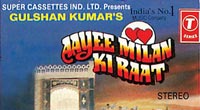
Lal Dupatta Malmal Ka Full HD Movie Download
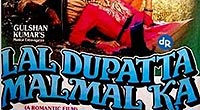
Bedardi Full HD Movie Download
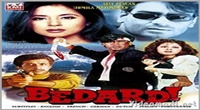
Hattrick Full HD Movie Download

Shriman Satyawadi Full HD Movie Download
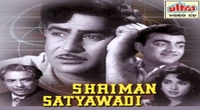
Zindagi Full HD Movie Download

The Great Gambler Full HD Movie Download

Marigold: An Adventure in India Full HD Movie Download

Paa Full HD Movie Download

Prem Geet Full HD Movie Download

Hot Money Full HD Movie Download
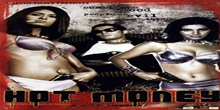
Kohra (1993) Full HD Movie Download
.jpg)
Bhookh (1978) Full HD Movie Download
.jpg)
Chak Jawana Full HD Movie Download
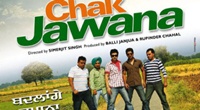
Ullasam Full HD Movie Download
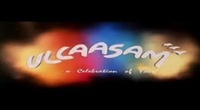
Swarga Seema Full HD Movie Download

Lakshami Narasima Full HD Movie Download
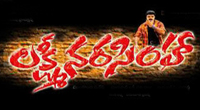
Apoorva Sahodharalu Full HD Movie Download
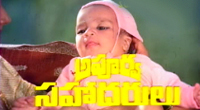
Kali Kaalam Full HD Movie Download
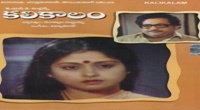
Devadasu Full HD Movie Download
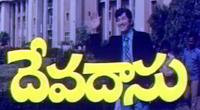
Chandni Full HD Movie Download

Download latest Movie from bollywood
- 1> baaghi 3
- 2> THE SKY IS PINK MOVIE FULL STORY AND REVIEW
- 3> Luka Chuppi
- 4> TO ALL THE BOYS I’VE LOVED BEFORE
- 5> Kabir Singh
- 6> Street Dancer 3D
- 7> Simmba
- 8> Gone Girl
- 9> The Girl Who Lived
- 10> Ludo
- 11> DILWALE DULHANIA LE JAYENGE
- 12> GUILTY
- 13> The Godfather
- 14> Adventures of Rusty
- 15> Sooryavanshi
- 16> Satyameva Jayate 2
- 17> Thappad
- 18> Bhool Bhulaiyaa 2
- 19> KGFChapter 2
- 20> Mardaani 2
- 21> Pinjar
- 22> Shivaji maharaj
- 23> Ek Villian 2
- 24> Hungama 2
- 25> Divergent
- 26> Mumbai Saga
- 27> The Internship
- 28> HIT (telugu)
- 29> Panga
- 30> The perfect date
- 31> 16 December
- 32> Gopala Gopala (Telugu)
- 33> Brahmastra
- 34> Gangubai Kathiawadi
- 35> Manmadhudu
- 36> Nenu local
- 37> Mahanati
- 38> Shatamanam bavathi
- 39> Lagaan
- 40> After
- 41> MOM
- 42> Shamshera
- 43> Raguvaran BTech
- 44> Khakee
- 45> The villain
- 46> OM
- 47> Mr. perfect
- 48> Bueatifull mind
- 49> Hichki
- 50> Gabbar Singh
- 51> Jogi
- 52> Before Sunrise
- 53> Before Sunset
- 54> Before Midnight
- 55> The Big Bull
- 56> Top Gun: Maverick
- 57> The Purge
- 58> The Sky is Pink
- 59> Laxmmi Bomb
- 60> Sadak 2
- 61> Sufna
- 62> Prithviraj
- 63> PK
- 64> Coolie No 1(2020)
- 65> Black Widow
- 66> Dear Zindagi
- 67> Dil Bechara
- 68> PHIR HERA PHERI
- 69> WAR
- 70> Dostana
- 71> RRR: Roudram Ranam Rudhiram
- 72> Maidan
- 73> Dabbang 3
- 74> Chhalaang
- 75> life as we know it
- 76> SherShaah
- 77> Sandeep Aur Pinky Faraar
- 78> Event Horizon
- 79> 83
- 80> Radhe: Your Most Wanted Bhai
- 81> Gunjan Saxena: The Kargil Girl
- 82> Mr India
- 83> Vivah
- 84> Anokha Bandhan
- 85> Ghost
- 86> Bhoot: Part One - The Haunted Ship
- 87> Haseen Dilruba
- 88> Laal Singh Chaddha
- 89> Qismat
- 90> Rajput
- 91> Drive
- 92> Dil Chahta Hai
- 93> Dil Ki Baazi
- 94> Dil Ka Rishta
- 95> Teesri Manzil
- 96> Dil
- 97> Love Aaj Kal
- 98> Khaali Peeli
- 99> Bunty Aur Babli 2
- 100> Atrangi Re
- 101> Gulabo Sitabo
- 102> Jodi
- 103> Suraj Pe Mangal Bhari
- 104> Deewana
- 105> Attack
- 106> Sardar Udham Singh
- 107> Toofan
- 108> THE LOVEBIRDS
- 109> Jersey
- 110> Ginny Weds Sunny
- 111> Thalaivi
- 112> Shiddat
- 113> Angels vs Zombies
- 114> Koi Mil Gya
- 115> Thank God
- 116> Bhuj: The Pride of India
- 117> Hum Aapke Hain Kaun
- 118> The Platform
- 119> Bird Box
- 120> Roohi Afzana
- 121> Torbaaz
- 122> Nikamma
- 123> World War Z
- 124> Extraction
- 125> Train to Busan
- 126> Life of Pi
- 127> SHAADI MEIN JROOR AANA
- 128> Himmat Aur Mehnat
- 129> To All The Boys: P.S. I Still Love You
- 130> Mimi
- 131> Good Newwz
- 132> Shubh Mangal Zyada Saavdhan
- 133> Raabta
- 134> Harry Potter and the Philosopher's Stone
- 135> Harry Potter and the Chamber of Secrets
- 136> Chhapaak
- 137> War of the Worlds
- 138> Harry Potter and the Prisoner of Azkaban
- 139> Harry Potter and the Goblet of Fire
- 140> MURDER MYSTERY
- 141> Shakuntala Devi
- 142> Bachchan Pandey
- 143> Jayeshbhai Jordar
- 144> Sheer Qorma
- 145> Saina
- 146> 'O' Pushpa I hate tears
- 147> Kedarnath
- 148> MS Dhoni The Untold Story
- 149> Chhichhore
- 150> Badhaai Ho
- 151> Unstoppable
- 152> Oz the Great And Powerful
- 153> The Girl on the Train
- 154> Haathi Mere Saathi 2020
- 155> The Conjuring: The Devil Made Me Do It
- 156> Gandhi Se Pehle Gandhi
- 157> The Song of Scorpions
- 158> Srimanthudu
- 159> Hello Guru Prema Kosame
- 160> Beauty and The Beast
- 161> Black Panther
- 162> Charlie and the Chocolate Factory
- 163> Bole Chudiyan
- 164> Fidaa
- 165> Duvvada Jagannadham
- 166> Bruce Lee: The Fighter
- 167> Hyper
- 168> Yaara
- 169> Red (2020)
- 170> Shivam
- 171> That Is Mahalakshmi
- 172> Nishabdham
- 173> Aashram 2020 web series
- 174> Laxmii
- 175> Mismatched
- 176> STUDENT OF THE YEAR 2
- 177> NAIL POLISH
- 178> Ramprasad Ki Tehrvi
- 179> KAAGAZ
- 180> 12 o Clock
- 181> The Power
- 182> bolo hau
- 183> Tribhanga
- 184> JAMUN
- 185> Madam Chief Minister
- 186> Maasaab
- 187> Aadhaar
- 188> Tanhaji
- 189> Bhaagi 3
- 190> Bhootnath
- 191> MALANG
- 192> Jai Mummy Di
- 193> Haathi Mere Saathi 2021
- 194> Shakeela
- 195> Unpaused
- 196> Annayya
- 197> Vamsoddharakudu
- 198> Mrugaraju
- 199> Narasimha Naidu
- 200> Sankranti
- 201> Manasu Maata Vinadhu
- 202> Anjaane
- 203> Apaharan
- 204> Bachke Rehna Re Baba
- 205> Bewafaa
- 206> Roohi
- 207> Radhe
- 208> Zindagi Khoobsoorat Hai
- 209> Yeh Mohabbat Hai
- 210> Yeh Kya Ho Raha Hai?
- 211> The Tomorrow War
- 212> DehradunDiary
- 213> Meri Shaadi Karaoo
- 214> Matruu Ki Bijlee Ka Mandola
- 215> No One Killed Jesica
- 216> Aag Ka Goola
- 217> Eight Million Dollars
- 218> Three Hundred
- 219> Cats and Dog
- 220> Decoy
- 221> Gold Rush
- 222> You Have Got Mail
- 223> Final Destination three
- 224> Tofan
- 225> Jungle
Request for Download movie Moondram Pirai
- Bollywood movies
- Latest Bollywood movies
- Download all bengali movies
- Download all bhojpuri movies
- Download all english movies
- Download all gujarati movies
- Download all hindi movies
- Download all kannada movies
- Download all malayalam movies
- Download all marathi movies
- Download all oriya movies
- Download all punjabi movies
- Download all tamil movies
- Download all telugu movies
- Bollywood action movies
- Bollywood adventure movies
- Bollywood animation movies
- Bollywood classical movies
- Bollywood comedy movies
- Bollywood crime movies
- Bollywood devotional movies
- Bollywood documentary movies
- Bollywood drama movies
- Bollywood family movies
- Bollywood fantasy movies
- Bollywood historical movies
- Bollywood history movies
- Bollywood horror movies
- Bollywood musical movies
- Bollywood mystery movies
- Bollywood mythological movies
- Bollywood patriotic movies
- Bollywood romance movies
- Bollywood romantic movies
- Bollywood sci-fi movies
- Bollywood social movies
- Bollywood spiritual movies
- Bollywood sports movies
- Bollywood suspense movies
- Bollywood thriller movies
- Bollywood war movies
- Hot actress list
- Hot gujarati actress list
- Hot tamil actress list
- Hot bhojpuri actress list
- Hot assam actress list
- Hot bihari actress list
- Hot jammu and kashmir actress list
- Hot gujarati actress list
- Hot haryana actress list
- Hot konkani actress list
- Hot marathi actress list
- Hot odia actress list
- Hot punjabi actress list
- Hot rajasthani actress list
- Hot kannada actress list
- Hot malayalam actress list
- Hot telugu actress list
- Hot tulu actress list
- Hot Actress list from Indian city
- Hot actress list from ahmedabad
- Hot actress list from alappuzha
- Hot actress list from bangalore
- Hot actress list from bangalore
- Hot actress list from bhopal
- Hot actress list from chandigarh
- Hot actress list from chennai
- Hot actress list from guwahati
- Hot actress list from hyderabad, india
- Hot actress list from indore
- Hot actress list from jaipur
- Hot actress list from kannur
- Hot actress list from kochi
- Hot actress list from kolkata
- Hot actress list from kollam
- Hot actress list from kottayam
- Hot actress list from kozhikode
- Hot actress list from lucknow
- Hot actress list from madurai
- Hot actress list from mangalore
- Hot actress list from mumbai
- Hot actress list from mysore
- Hot actress list from new delhi
- Hot actress list from patna
- Hot actress list from pune
- Hot actress list from thiruvananthapuram
- Hot actress list from thrissur
- Hot actress list from tiruchirappalli
- Hot actress list from vijayawada
- Hot actress list from visakhapatnam
- All Bollywood Movies
- Bollywood Celeb
- >Art Director
- >Audiography
- >Background Music
- >Banner
- >Choreographer
- >Cinematographer
- >Costume Designer
- >Dialogue Writer
- >Director
- >Distributor
- >Editor
- >Executive Producer
- >Hair Stylist
- >Lyricist
- >Music Director
- >Photographer
- >Playback Singers
- >Presenter
- >Producer
- >Production Company
- >Production Designer
- >Screenplay
- >Singer
- >Sound
- >Actor
- >Story Writer
- >Studio
- >Video Director
- >Miscellaneous
- >Publicity (pro)
- >Web Creator
- >Production Labs
- >Publicity Design
- >Publicity Stills
- >Writer
- >Miscellaneous Artists
- >Visual Effects
- >Reporter
- >Music Company
- >Shooting Studios
- >Picturised On
- >Line Producer
- >Co Producer
- >Asst Director
- >Casting Director
- >Cinematography
- >Choreography
- >Dialouge
- >Editing
- >Lyrics
- >Music
- >Story
- >Playback Singer Female
- >Playback Singer Male
- >Actor In A Comic Role (male/female)
- >Child Artiste
- >Ensemble Cast
- >Actor Popular Choice (male)
- >Actor Popular Choice (female)
- >Sa Re Ga Ma Pa Song Of The Year
- >Actor In Supporting Role
- >Actress In Supporting Role
- >Actor In Leading Role
- >Art Direction
- >Actress In Leading Role
- >Sound Recording
- >Costume Design
- >Special Effects
- >Action
- >Actor In A Negative Role
- >Lifetime Achievement Award
- >Cinematic Exellence (director)
- >Cinematic Exellence (male)
- >Cinematic Exellence (female)
- >International Male Icon
- >International Female Icon
- >Actor In A Supporting Role (male)
- >Actor In A Supporting Role (female)
- >Actor In A Comic Role
- >Playback Singer (male)
- >Playback Singer (female)
- >Most Promising Debut (female)
- >Most Promising Debut (male)
- >Most Promising Director
- >Sound Design
- >Lifetime Jodi
- >Marketed Film
- >Jury Award For Best Actor
- >Jury Award For Best Actress
- >Jury Award For Best Film
- >Jury Award For Best Director
- >Playback Singer(male)
- >Lifetime Acheivement Award (male)
- >Excellence Award
- >Jodi Award
- >Performer Of The Year
- >Presented By
